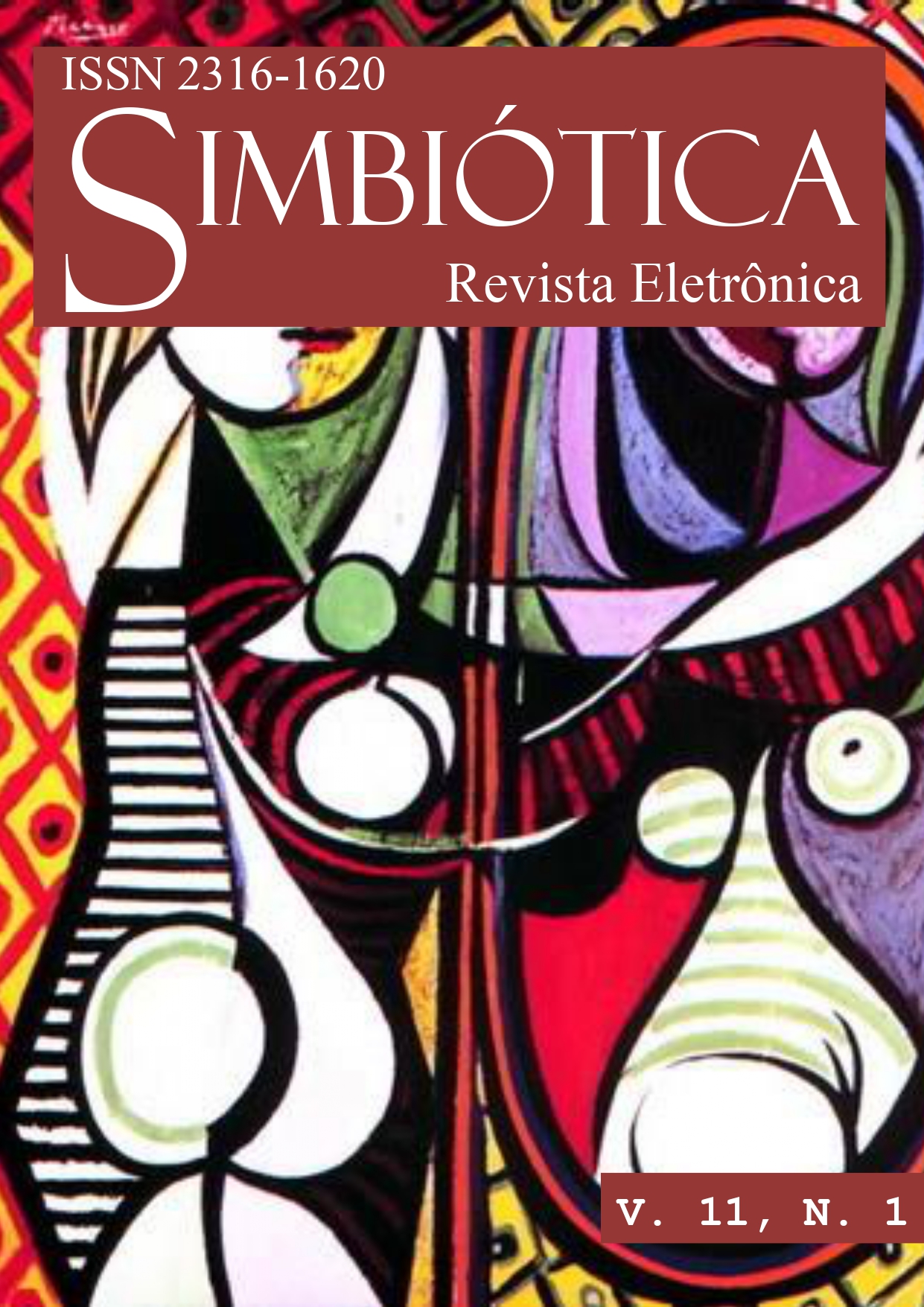Senses of proximity in relations between Brazilian migrants mediated by smartphones
Senses of proximity in relations between Brazilian migrants mediated by smartphones
DOI:
https://doi.org/10.47456/simbitica.v11i1.44756Keywords:
connected migrant, digital platforms, emotions, affections, digital technologiesAbstract
The article discusses the emotions and affections of Brazilian men and women migrants living in European cities in relation to the practices of using their social media on digital platforms. It aims to understand the feelings, emotions and affections of being and being a connected migrant and their relationship with their family networks, friendships and with natives and other migrants. The method used was structured and semi-structured interviews.
Downloads
References
Balibar, Étienne; Swenson, James. (2004). We, the people of Europe? Reflections on transnational citizenship. Princeton, NJ, Princeton University Press.
Ben-David, Anat. (2012). “The Palestinian diáspora on the Web: between de-territorialization and re-territorialization”. Social Science Information, v. 4, n. 51, pp. 459-474. [Consult. 15-06-2023]. Disponível em https://doi.org/10.1177/0539018412456769
Calhoun, Craig. (2017). The Rhetoric of Nationalism. In: Skey, Michael; Antonsich, Marco (ed.). Everyday Nationhood: Theorising Culture, Identity and Belonging after Banal Nationalism. London: Palgrave Macmillan, pp. 17-30.
Ceifal, Sara; Couldry, Nick. (2019). “Mediating the presence of others: reconceeptualising co-presence as mediated intimacy”. European Journal of Cultural Studies, v. 3, n. 22, pp. 291-308. [Consult. 15-06-2023].Disponível em https://doi.org/10.1177/1367549417743040
Diminescu, Dana. (2008). “The connected migrant: an epistemological manifesto”. Social Science Information, v. 47, n. 4, pp. 565-579. [Consult. 15-06-2023]. Disponível em https://doi.org/10.1177/0539018408096447
Diminescu, Dana; Loveluck, Benjamin. (2014). “Traces of dispersion. Online media and diasporic identities”. Journal of Migration & Culture, vol. 5, n° 1, pp. 23-39. [Consult. 15-06-2023]. Disponível em https://shs.hal.science/halshs-01172505
Floridi, Luciano. (2017). La quarta rivoluzione: come l'infosfera sta trasformando il mondo. Milano, Cortina.
Haesbart, Rogério. (2007). “Território e multiterritorialidade: um debate”, GEOgraphia, ano IX, no. 17. [Consult. 15-06-2023]. Disponível em https://doi.org/10.22409/GEOgraphia2007.v9i17.a13531
Leurs, Koen; Ponzanesi, Sandra. (2018). “Connected migrants: Encapsulation and cosmopolitanization”, Popular Communication, v. 16, n.1, pp. 4-20, [Consult. 15-06-2023]. Disponível em https://doi.org/10.1080/15405702.2017.1418359
Miller, Daniel. (2021). “A theory of a theory of the smartphone”. Cultural Studies, v. 24, n. 5, pp. 860-876. [Consult. 15-06-2023]. Disponível em https://doi.org/10.1177/1367877921994574
Ponzanesi, Sandra. (2020). “Digital diasporas: postcoloniality, media and affect”. Interventions, v. 8, n. 22, pp. 977-993 [Consult. 15-06-2023]. Disponível em https://doi.org/10.1080/1369801X.2020.1718537
Poell, Thomas et. al. (2022). “Locating and Theorizing Platform Power”. Panel presented at AoIR 2022: The 23rd Annual Conference of the Association of Internet Researchers. Decolonising the Internet. [Consult. 15-06-2023]. Disponível em http://spir.aoir.org
Koivunen, Anu et. al. (2023). “Antecipation as platform power: the temporal structuring of digital everyday life”. Television & New Media, v. 25, n. 2, pp. 1-8. [Consult. 15-06-2023]. Disponível em https://doi.org/10.1177/15274764231178228
Turkle, Sherry.(2011). Alone together. Why we expected more from technology and less from each other. Basic Books, New York.
Van Dijck, José.; Poell, Thomas; Waal, Martjn. (2018). The Platform Society. Oxford University Press.
Downloads
Published
How to Cite
Issue
Section
License
Copyright (c) 2024 Maria Cristina Dadalto

This work is licensed under a Creative Commons Attribution-NonCommercial 4.0 International License.
Autores que publicam nesta revista concordam com os seguintes termos:
a. Autores mantém os direitos autorais e concedem à revista o direito de primeira publicação, com o trabalho simultaneamente licenciado sob a Creative Commons - Atribuição-NãoComercial 4.0 Internacional.
b. Compartilhar - copiar e distribuir o material em qualquer meio ou formato.
Adaptar - remix, transformar e construir sobre o material para qualquer finalidade, inclusive comercial.
c. Autores têm autorização para assumir contratos adicionais separadamente, para distribuição não-exclusiva da versão do trabalho publicada nesta revista (ex.: publicar em repositório institucional ou como capítulo de livro), com reconhecimento de autoria e publicação inicial nesta revista.
d. Autores têm permissão e são estimulados a publicar e distribuir seu trabalho online (ex.: em repositórios institucionais ou na sua página pessoal) a qualquer ponto antes ou durante o processo editorial, já que isso pode gerar alterações produtivas, bem como aumentar o impacto e a citação do trabalho publicado (Veja O Efeito do Acesso Livre).
Authors who publish in this journal agree to the following terms:
a. Authors retain the copyright and grant the magazine the right of first publication, with work simultaneously licensed under the CCreative Commons - Atribuição-NãoComercial 4.0 Internacional.
b. Share - copy and distribute the material in any medium or format.
Adapt - remix, transform and build on the material for any purpose, including commercial.
c. Authors are authorized to take additional contracts separately, for non-exclusive distribution of the version of the work published in this journal (eg, publish in institutional repository or as a book chapter), with acknowledgment of authorship and initial publication in this journal.
d. Authors are allowed and encouraged to publish and distribute their work online (eg.: in institutional repositories or on their personal page) at any point before or during the editorial process, as this can generate productive changes as well as increase the impact and the citation of the published work (See The Effect of Free Access).














